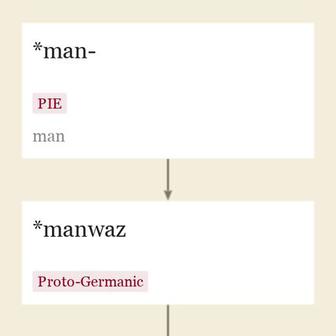manhole n.
also man-hole, "
Entries linking to manhole

"
Sometimes connected to root *men- (1) "
Specific sense of "
Man also was in Old English as an indefinite pronoun, "
As "
Man-about-town "
So I am as he that seythe, 'Come hyddr John, my man.' [1473]
MANTRAP, a woman's commodity. [Grose, "Dictionary of the Vulgar Tongue," London, 1785]
At the kinges court, my brother, Ech man for himself. [Chaucer, "Knight's Tale," c. 1386]
Old English hol (adj.) "
As a contemptuous word for "
updated on November 15, 2018